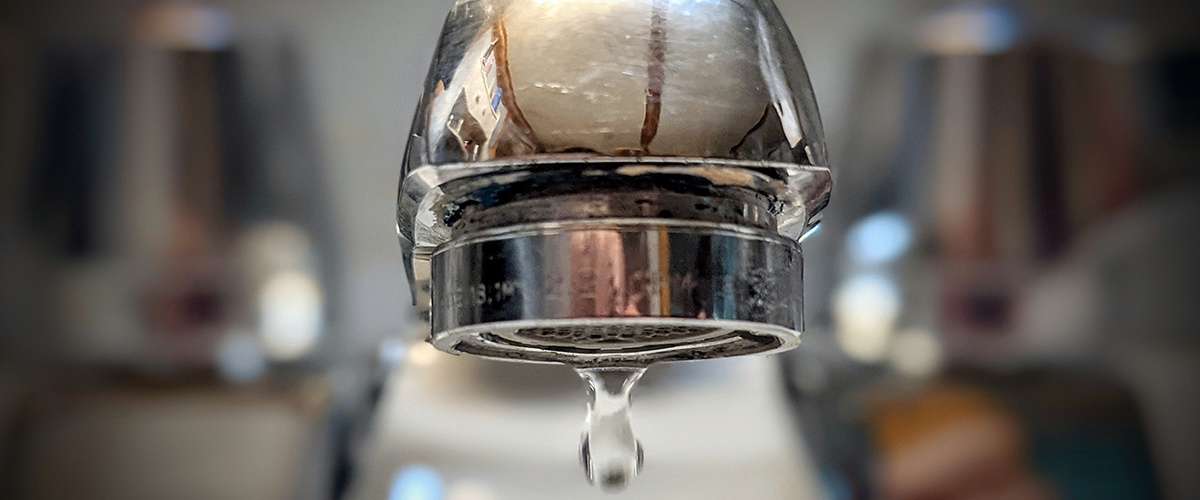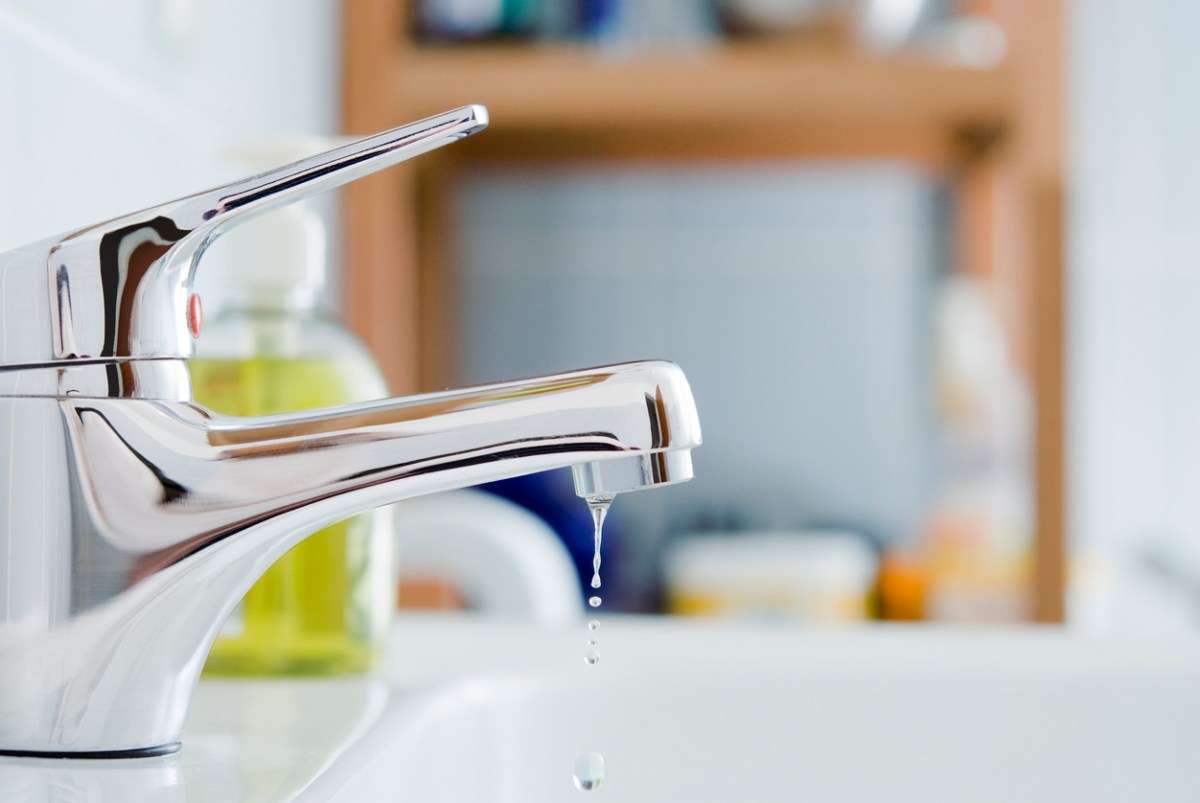Our Explanations Behind Dealing with a Broken Faucet
Our Explanations Behind Dealing with a Broken Faucet
Blog Article
Right here down the page you will find a lot of quality expertise related to Why Is It Important To Fix Your Leaking Tap/Faucet?.

Trickling taps might appear like a small hassle, however their impact surpasses just the aggravation of the noise. From drainage to sustaining unnecessary economic expenses and wellness risks, neglecting a trickling tap can lead to different effects. In this short article, we'll look into why it's important to address this typical family issue without delay and efficiently.
Wastefulness of Water
Environmental Effect
Trickling faucets contribute dramatically to water wastefulness. According to the Environmental Protection Agency (EPA), a single faucet dripping at one drip per secondly can lose greater than 3,000 gallons of water each year. This not only stress water resources yet likewise impacts ecological communities and wildlife based on them.
Step-by-Step Overview to Repairing a Dripping Faucet
Tools Needed
Prior to attempting to fix a trickling faucet, collect the required devices, consisting of an adjustable wrench, screwdrivers, replacement parts (such as washing machines or cartridges), and plumber's tape.
Typical Faucet Issues and Their Solutions
Determine the kind of faucet and the specific concern triggering the drip. Common problems consist of worn-out washing machines, rusty valve seats, or defective O-rings. Refer to producer instructions or on the internet tutorials for detailed advice on repair work.
Financial Expenses
Enhanced Water Bills
Past the environmental influence, dripping taps can blow up water bills considerably. The accumulated wastage gradually equates right into higher energy expenses, which might have been prevented with prompt repair services.
Potential Building Damage
Moreover, extended trickling can result in damage to components and surface areas surrounding the faucet. Water build-up can trigger discoloration, deterioration, and also architectural issues if left neglected, leading to additional repair service costs.
Wellness Worries
Mold and Mildew Development
The consistent presence of moisture from a trickling faucet creates an optimal setting for mold and mildew and mold growth. These fungi not only jeopardize interior air top quality however additionally pose wellness risks, especially for individuals with respiratory system conditions or allergies.
Waterborne Illness
Stagnant water in dripping taps can end up being a breeding place for germs and other virus, raising the danger of waterborne illness. Pollutants such as Legionella bacteria thrive in stagnant water, possibly leading to major diseases when ingested or inhaled.
DIY vs. Expert Repair service
Benefits and drawbacks of Do It Yourself Fixing
While some might try to deal with a trickling tap themselves, DIY repairs come with their very own set of challenges. Without correct expertise and tools, DIY efforts can worsen the issue or result in incomplete repair services, extending the trouble.
Benefits of Working With an Expert Plumber
Hiring a specialist plumber guarantees that the underlying source of the dripping tap is addressed successfully. Plumbings have the know-how and equipment to identify and fix tap concerns efficiently, saving time and lessening the threat of further damage.
Environmental Obligation
Private Payment to Preservation
Taking responsibility for fixing dripping faucets aligns with broader efforts toward water preservation and ecological sustainability. Every person's activities collectively make a considerable effect on preserving valuable resources.
Sustainable Living Practices
By focusing on timely repair work and adopting water-saving behaviors, people contribute to lasting living methods that benefit both existing and future generations.
Preventive Measures
Normal Maintenance Tips
To avoid leaking taps, execute routine upkeep such as cleaning up aerators, evaluating for leakages, and replacing worn-out components without delay. Additionally, think about mounting water-saving tools or updating to more effective fixtures.
Significance of Prompt Services
Resolving dripping faucets as quickly as they're seen avoids additional water waste and possible damages, ultimately saving both water and money in the long run.
Impact on Property Worth
Assumption of Well-Maintained Residential Or Commercial Property
Maintaining a home in good condition, including dealing with maintenance concerns like trickling faucets, enhances its regarded worth and value among prospective buyers or lessees.
Influence on Resale Value
Features with properly maintained plumbing fixtures, consisting of faucets, command greater resale values in the property market. Dealing with trickling faucets can add to a positive impact during building evaluations and arrangements.
Conclusion
Attending to a trickling faucet exceeds simple ease; it's an important step towards preserving water, lowering financial expenses, and securing wellness and building. Whether through do it yourself repairs or professional assistance, taking action to fix dripping taps is a tiny yet impactful means to promote accountable stewardship of resources and contribute to a healthier, more lasting future.
How to Fix a Leaky Faucet: Step-by-Step Repair Guide
A leaky faucet may seem like a simple annoyance, but if it's not fixed promptly, that leak could cost hundreds to potentially thousands. From water damage to mold, mildew, and high water bills, even a tiny leak can be catastrophic if left unattended. Damage like this can even affect the overall value of your home, so it's important to take the right approach for leaky faucet repair. You may need the help of a plumber in some cases, but we've got a few tips you can try on how to fix a leaky faucet before calling the pros.
Four Faucet Types
When you're learning how to fix a leaky faucet, the first step is knowing what kind of faucet you're working with! There are four common types.
Cartridge Faucets
Cartridge faucets come in one- or two-handled varieties. In one-handled cartridge faucets, hot and cold water combines in a single cartridge. In the two-handled versions, hot and cold water are controlled separately and mixed in the faucet.
Ball Faucets
Ball faucets have a single lever you push up and down to adjust the pressure and rotate to change the temperature. A slotted metal ball controls the amount of water allowed into the spout.
Compression Washer Faucets
They're the oldest type of faucet, but they're still used in many homes — especially older ones. Compression faucets have two separate handles that, when turned, raise or lower the washer that seals a water valve. This valve stops water from flowing through the faucet when it is turned off.
Disc Faucets
Disc faucets rarely need to be repaired due to their maintenance-free design. The water flow is controlled by two discs — the upper one raises and lowers against a fixed lower disc, creating a watertight seal. If your disc faucet starts leaking, you may need to replace the seals or clean residue buildup from the inlets.
Fixing a Leaky Faucet
Step 1: Turn Off the Water
Whether you're learning how to fix a leaky bathtub faucet or how to fix a leaky kitchen faucet, always turn off the water supply to your working area when you're fixing a leak. The last thing you want is a flood added to your list of things to fix.
Look for the shutoff valves below your sink or around the tub and turn them clockwise to stop the water flow. If your faucet doesn't have shutoff valves, you may need to turn off the water for the whole house. Check to make sure it's off by turning the faucet on. If nothing comes out, you're ready to start the repair.
Step 2: Take Apart the Faucet
How you disassemble your faucet depends on the type of fixture you have. You can use a flathead screwdriver to remove the caps on top of the handle or handles for cartridge and compression faucets. Inside, you should see handle screws. Unscrew these with a screwdriver to remove the handle.
Disc- and ball-style faucets will typically have an inlet screw near the handle, and removing that will reveal the interior of the faucet.
Detach the Valve Stem
For cartridge- and compression-style faucets, you'll see the inner valve stem or cartridge once you remove the faucet handles. If you have a compression faucet, unscrew the brass valve stem. If you have a cartridge faucet, pull out the cartridge. If your cartridge has been in place for a while, it may require some tools or extra force to remove it due to mineral deposits.
Examine and Replace Parts
Once you've removed the parts, check them out to confirm what needs to be replaced. You may see corroded rubber washers, O-rings, stems, or cartridges. On a ball-style faucet, check the seats and springs for damage.
If you need to repair a leaky disc faucet, check the inlet and seals on the lower disc.
Once you determine what parts must be replaced, visit your local hardware store. Bring the damaged parts with you to ensure you can purchase the correct components to replace them.
Clean Valves and Faucet Cavity
If you've removed a stem or cartridge, you may notice mineral buildup in the faucet's threads. Use white vinegar to clean the valve seat by soaking it for a few minutes, then scrub it away with a soft toothbrush and rinse with warm water. You can also clean the interior of the faucet in the same way.
Reassemble the Faucet
Once your faucet is cleaned and the required parts have been replaced, it's time to reassemble it. Put the pieces back together and slowly turn the water supply back on. Doing this slowly is crucial because too much initial water pressure can damage the new hardware you've just installed.
https://homewarranty.firstam.com/blog/how-to-fix-leaky-faucet

I am just very serious about Should I Repair or Replace a Leaky Faucet? and I hope you enjoyed reading the entire article. Loved our blog posting? Please share it. Let others locate it. I value reading our article about Why Is It Important To Fix Your Leaking Tap/Faucet?.
Report this page